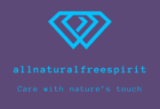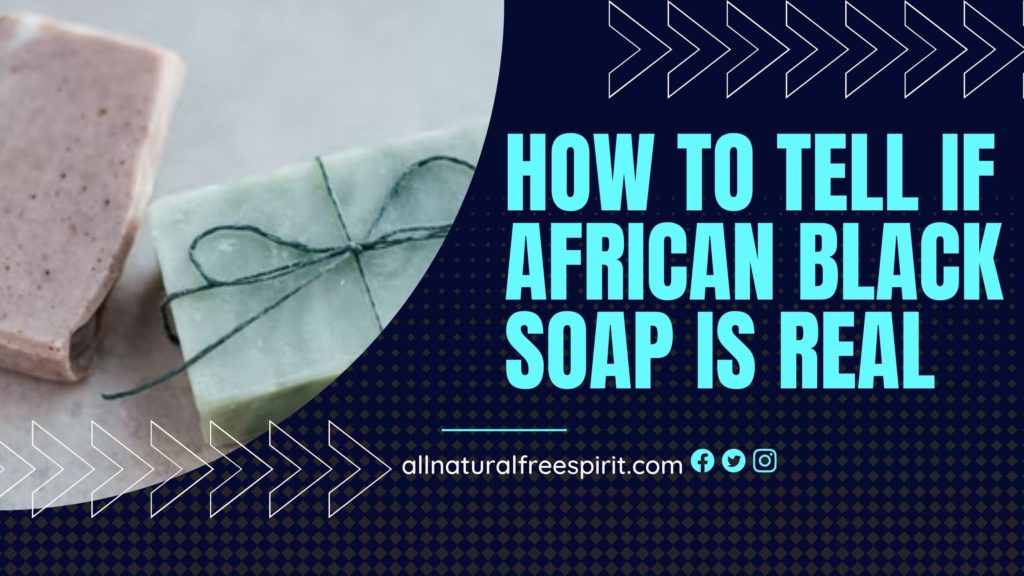No one wants to buy or use something that’s not authentic. Same with African black soap. This is something that you will be applying to your body, so it is important to know how to tell if it is real.
This post will give you several tips on how to tell if your African black soap is the real deal.
As more people become aware of the incredible benefits of black soap, more and more companies are trying to jump on the bandwagon and sell their own versions of it.
But not all black soaps are created equal. In fact, many of the commercial black soaps on the market today are far from being authentic.
One thing that most people struggle with is telling the difference between real black soap and fake black soap.
The reason why this is so difficult is that there are so many different types of black soap on the market, and many of them look very similar to each other.
So how can you tell if the black soap you’re using is the real deal? Here are a few tips that will help you tell if your African black soap is authentic:
What is African Black Soap?

African black soap is believed to have originated from the Yoruba tribe in Nigeria. It comprises of palm leaves, cocoa pods, palm oil, and kernels.
These ingredients are then sun-dried and roasted before being mixed with water and left to ferment.
The final product is a dark brown or black soap that has a rough texture. It is often used to treat skin conditions such as acne, eczema, and psoriasis.
African women have also used it for centuries as a beauty product to help keep their skin looking young and radiant.
Most experts agree that even though it’s not easy to differentiate between real and fake African black soap.
It is worth the effort because authentic African black soap is known to be one of the most beneficial skincare products on the market.
So how can you tell if your black soap is authentic? Here are a few tips:
Read: Can black soap be whipped?

How To Tell If African Black Soap Is Real
1. Check The Ingredients List
The first thing you should do to know whether the soap is real or fake is to check the list of ingredients. Real black soap should only contain natural ingredients such as palm leaves, cocoa pods, palm oil, and kernels.
If the list of ingredients contains any synthetic materials or fragrances, then it is most likely not authentic. According to Africa journal, “If the soap contains synthetic materials or fragrances, it is not authentic African black soap.”
Even though the recipe may differ by manufacturer, You should expect to find all-natural ingredients listed on the product.
2. Check the Soap Color
Another way to tell if your black soap is authentic is to check the color. Real black soap should be a dark brown or black color.
If the soap is any other color, it is most likely not authentic. If the soap is a light brown, it is not authentic.
Unauthentic black soap tends to have a light brown color which is due to the addition of synthetic fragrances or dyes. Many experts believe that this is one of the easiest ways to spot a fake black soap.
Be sure to compare the color of the soap to other authentic black soaps that you have.
Read: Can you use African black soap on your body?
3. Look For A Rough Texture
One of the most distinguishing features of real black soap is its rough texture. If the soap is smooth and has no lumps or bumps, it is most likely not authentic. Authentic black soap will have a rough, lumpy texture.
Many experts believe that the rough texture is due to the way the soap is made.
The ingredients are sun-dried and roasted before being mixed with water and left to ferment. This process often results in a rough, bumpy texture.
4. Check The Smell
The smell of black soap is another way to tell if it is authentic or not. Natural black soap has a strong, earthy smell that is often described as being “nutty.”
If the soap has a light or floral smell, it is not authentic. Most chemical-laced black soap will have a light, floral smell.
Be sure to take a deep whiff of the soap before purchasing it. It is probably not authentic if you don’t detect a strong, earthy smell.
5. Compare Prices
One of the most telling signs of a fake black soap is its price. Authentic black soap is often more expensive than other types of soap because of the ingredients that are used to make it.
If the soap price is significantly lower than other black soaps on the market, it is most likely not authentic.
When it comes to black soap, you often get what you pay for. If the price is too good to be true, it probably is.
Read: Liquid black soap face wash
Frequently Asked Questions on Fake Black Soap
What color is pure African Black Soap?
Real black soap should be a dark brown or black color. However, it’s not totally black; it should have some brownish spots in it. The ash content in the soap is what gives it the black color.
What Does It Mean When African Black Soap Turns White?
It means the soap is not authentic. When black soap is made correctly, it will always be a dark brown or black color. If the soap is white, it means that it has been combined with a synthetic fragrance or dye, which will make it less effective.
What does African Black Soap Smell Like?
African Black Soap has a robust and earthy smell that is often described as being “nutty.” If the soap has a light or floral smell, it is not authentic.
If you’re looking for a genuine African black soap, be sure to look for the telltale signs listed above on how to tell if African black soap is real.
Authentic black soap will have a rough texture, a strong, earthy smell, and all-natural ingredients. If the soap doesn’t have any of these characteristics, it’s most likely not authentic.

